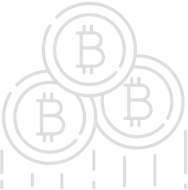INLOCK is a lending platform that enables cryptocurrency holders to manage short-term liquidity problems by taking a loan, using their existing cryptocurrencies as collateral. The credit transactions are established between the two parties directly. INLOCK merely acts as an intermediary to record the terms of the agreement which are established in a smart contract, making every credit contract between parties immutable and impossible to manipulate. Inlock (ILK) is an ethereum-based token that will be used when creating a lending contract.
STO/ICO Status
Claim this listing and publish updates.
Basics
| Platform | Ethereum |
|---|---|
| Type | ERC20 |
| Accepting | BTC, BCH, ETH, LTC |
| Circulating Supply | 75% |
| KYC | N/A |
| Restricted Areas | N/A |
| Homepage | Website URL |
| White Paper | View/Download |
Bonus
- Sept 15 – Sept 21 - 17%
- Sept 22 – Sept 28 - 12%
- Sept 29 – Oct 5 - 9%
- Oct 6 – Oct 12 - 2%
About
The INLOCK lending platform enables cryptocurrency holders to manage short-term liquidity problems by taking out a loan, using their existing cryptocurrencies as collateral. Lenders wishing to offer a loan can do so - with the appropriate permits - risk-free to those in need. Since collateral can be exchanged into FIAT currency immediately, the risks for the lender party are almost identical to a bank deposit while earning higher interest rates.
Credit transactions are established between the two parties directly. INLOCK acts as an intermediary, ensuring that the parameters of the agreement are formally recorded in a smart contract. This way, every credit contract between the parties is irrefutable and impossible to manipulate.
Borrowers can set the amount and duration of the loan according to their needs. Also, the level of risk taking for exchange rate fluctuations is customizable. The process is fast and seamless, and there is no need for additional credit assessment, since the borrower provides the collateral, offering rapid and flexible convertibility.
The platform enables institutions to enter new markets which have been out of their reach, or else additional costs have prevented them from entering the market as lenders. The process requires a level of AML/KYC adherence similar to traditional lending.
